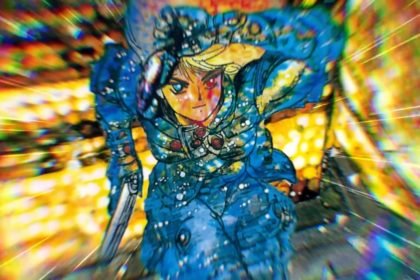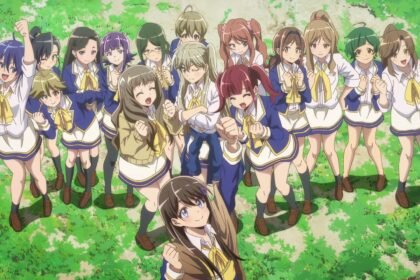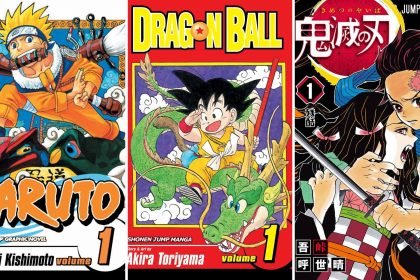Shonen anime and manga have captured the hearts of fans around the world with their thrilling stories, vibrant characters, and exciting action. But what exactly defines Shonen? In this article, we will delve into the world of Shonen and explore its characteristics, popular series, impact, criticisms, and more. Whether you’re a dedicated fan or just curious about this genre, join us on this journey as we examine the definition of Shonen anime and manga.
What is Shonen?
Defining Shonen
Shonen, which translates to “young boy” in Japanese, refers to a genre of anime and manga aimed primarily at male audiences in their teenage years. However, it’s important to note that Shonen is not limited to just young boys. It has a broad appeal and attracts fans of various ages and genders due to its universal themes and engaging storytelling.
Target Audience
While Shonen is primarily targeted at young male audiences, it has a wide following among people of all genders and age groups. The stories often revolve around themes of friendship, growth, determination, and overcoming challenges, which resonate with a diverse range of individuals. The genre’s popularity extends beyond its intended demographic, attracting fans who enjoy the excitement, action, and emotional depth that Shonen offers.
Further Readings: Masculinity in Shonen Anime: How Popular Series Shape Perceptions
Characteristics of Shonen Anime and Manga
Themes and Genres
Shonen encompasses a wide range of themes and genres, offering something for everyone. It can include action, adventure, fantasy, sports, science fiction, and more. The stories often follow protagonists on their journeys of self-discovery and personal growth, as they face formidable adversaries and overcome obstacles. Themes of friendship, teamwork, perseverance, and the pursuit of dreams are commonly explored in Shonen narratives.
Protagonists and Character Development
One of the defining features of Shonen is the development of its protagonists. The main characters are typically young, ambitious, and possess a strong sense of justice. They often start as underdogs, but through their determination and the support of their friends, they grow stronger both physically and emotionally. The audience becomes emotionally invested in their journey, witnessing their growth and cheering them on as they face increasingly challenging opponents.
Action and Adventure
Shonen is known for its high-energy action sequences and thrilling adventures. From epic battles to intense training montages, the genre delivers adrenaline-pumping moments that keep audiences on the edge of their seats. The action is often accompanied by strategic thinking, as protagonists devise clever tactics to outsmart their opponents. This combination of action, adventure, and strategic elements creates a captivating experience for viewers and readers alike.
Popular Shonen Series
Examples and Analysis
Some of the most popular Shonen series have become cultural phenomena, captivating fans worldwide. One such example is “Naruto,” created by Masashi Kishimoto. It follows the journey of Naruto Uzumaki, a young ninja who dreams of becoming the strongest ninja in his village. Through its compelling storytelling, dynamic characters, and themes of friendship and perseverance, “Naruto” has resonated with millions of fans globally.
Another notable series is “One Piece” by Eiichiro Oda. It tells the story of Monkey D. Luffy and his crew of pirates as they search for the ultimate treasure, the One Piece. With its vast world-building, diverse cast of characters, and a blend of comedy, action, and drama, “One Piece” has gained a massive following and holds the record as the best-selling manga series of all time.
Impact and Influence of Shonen Anime and Manga
Global Reach of Shonen Anime and Manga
Shonen anime and manga have transcended cultural boundaries, gaining popularity worldwide. The compelling narratives, relatable characters, and universal themes have resonated with fans from different cultures and backgrounds. Shonen series have been translated into multiple languages, enabling fans around the globe to enjoy and connect with these stories.
Cultural Significance
Shonen has had a significant impact on popular culture. Influencing not only other anime and manga but also various forms of media. It has inspired countless adaptations, spin-offs, merchandise, and even live-action adaptations. Its characters and catchphrases have become iconic, recognized by fans and non-fans alike. Shonen has also fostered vibrant fan communities, where enthusiasts gather to discuss and celebrate their favorite series, further contributing to its cultural significance.
Criticisms and Debates on Shonen Anime and Manga
Representation and Diversity
While Shonen has garnered immense popularity. It has faced criticism for its lack of representation and diversity, particularly in its early years. Female characters were often relegated to supporting roles or portrayed in stereotypical ways. However, in recent years, there has been a conscious effort to address these issues and introduce more diverse and well-rounded characters in Shonen series.
Formulaic Storytelling of Shonen Anime and Manga
Another criticism leveled against Shonen is its perceived formulaic storytelling. Some argue that many Shonen series follow a predictable structure. With the protagonist facing increasingly powerful adversaries and relying on the power of friendship to triumph. While this formula can be comforting and satisfying for fans. It has led to debates about originality and innovation within the genre.
Conclusion
Shonen anime and manga have captivated audiences worldwide with their exciting stories, memorable characters, and universal themes. Despite its initial target audience being young boys, Shonen has garnered a diverse and passionate fan base. Through its action-packed narratives, engaging character development, and impact on popular culture, Shonen continues to leave a lasting impression. As the genre evolves and addresses criticisms. It will undoubtedly shape the future of anime and manga for years to come.













